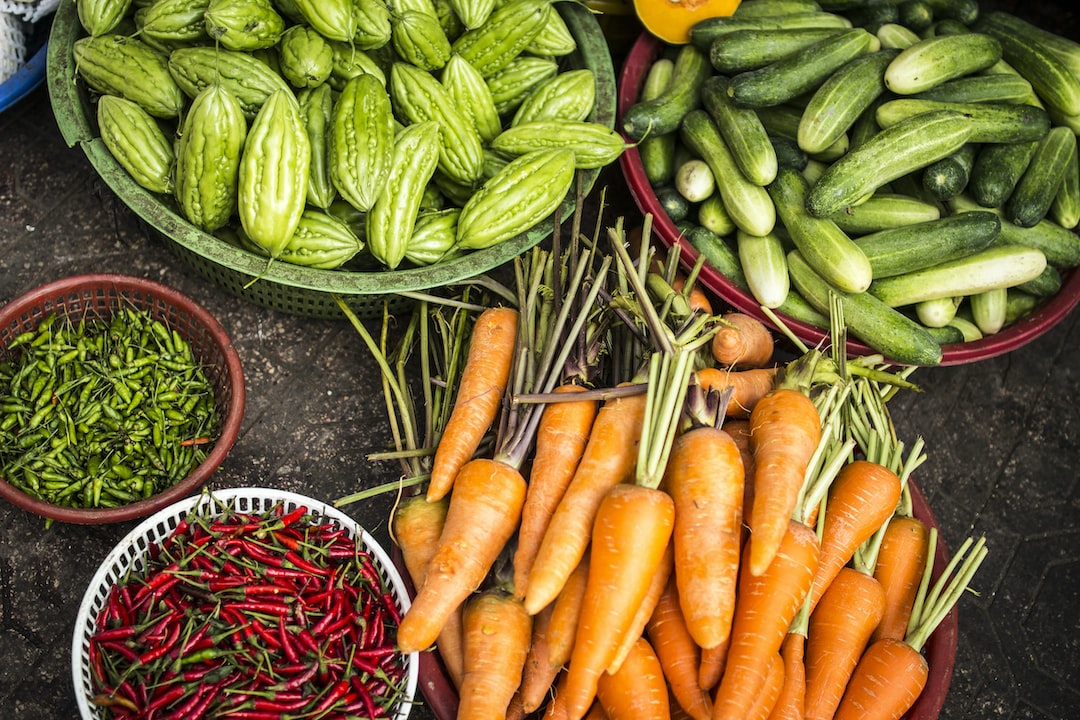African holistic healing has been practiced for centuries, rooted in the belief that true health is achieved by balancing the mind, body, and spirit. Central to this ancient practice is the vital role of nutrition in promoting overall well-being. By incorporating nutrient-rich foods into our diets, we can tap into the incredible healing properties of nature. In this article, we will explore the significance of nutrition in African holistic healing and how it can positively impact our health.
The African Holistic Approach to Health
In African holistic healing, the focus isn't merely on treating surface symptoms but rather on addressing the root causes of illness. This approach recognizes the interconnectedness between the physical, mental, emotional, and spiritual aspects of a person's well-being. By nurturing and optimizing each of these elements, individuals can achieve a state of optimum health and balance.
The Power of African Superfoods
Africa boasts a rich and diverse range of indigenous superfoods that are packed with essential nutrients and healing properties. These superfoods have been used for generations to nourish the body, strengthen the immune system, and prevent illness. Some of the most revered African superfoods include baobab, moringa, fonio, and amaranth.
Baobab is a fruit that is rich in vitamin C, antioxidants, and minerals. It is known for its ability to support digestion, boost the immune system, and provide sustained energy. Moringa leaves are prized for their high concentration of vitamins, minerals, and amino acids. They are believed to possess anti-inflammatory, anti-diabetic, and anti-cancer properties.
Fonio and amaranth are ancient grains that have sustained African civilizations for centuries. These grains are gluten-free and provide a good source of protein, fiber, and essential amino acids. They are also rich in vitamins and minerals, making them valuable components of a balanced diet.
The Role of Fresh Fruits and Vegetables
In African holistic healing, fresh fruits and vegetables play a central role in promoting health and vitality. These plant-based foods are believed to contain the life force energy necessary for optimal wellness. The vibrant colors of fruits and vegetables signify their rich nutrient content, including vitamins, minerals, antioxidants, and phytochemicals.
Leafy greens like kale, spinach, and collard greens are abundant in iron, calcium, and other essential minerals. They are also packed with vitamins A, C, and K, which support immune function and overall health. Colorful fruits like berries, oranges, and mangoes are sources of powerful antioxidants and phytonutrients that protect the body against free radicals and reduce inflammation.
Herbs and Spices for Healing
Herbs and spices are integral components of African holistic healing practices. These culinary additions not only enhance the flavors of dishes but also provide numerous health benefits. Turmeric, for example, contains curcumin, a compound that has been studied for its potent anti-inflammatory properties.
Garlic is renowned for its immune-boosting effects, while ginger aids digestion and soothes the stomach. Cayenne pepper, with its active component capsaicin, contributes to pain relief and may improve cardiovascular health. By incorporating these herbs and spices into our meals, we can unlock their incredible healing potential.
The Healing Power of Traditional African Healing Practices
African holistic healing isn't solely focused on nutrition. It also incorporates various traditional healing practices to promote overall well-being. These practices may include meditation, herbal remedies, energy healing, and ceremony. When combined with a nutrient-dense diet, these healing modalities can amplify the benefits and support the body's natural healing processes.
Meditation, for instance, facilitates mental and emotional clarity, reducing stress and promoting relaxation. Herbal remedies, derived from plants, have been used for centuries to alleviate common ailments and support various bodily functions. Energy healing practices, such as Reiki, work to balance the body's energy centers and promote mental, emotional, and physical equilibrium.
Supporting Sustainable Agriculture
When discussing the power of nutrition in African holistic healing, it is essential to address the importance of supporting sustainable agriculture practices. By consuming foods that are grown and sourced sustainably, we not only nourish our bodies but also show respect for the earth and its finite resources.
Supporting local farmers and purchasing organic, fair-trade products contribute to the preservation of traditional farming practices and biodiversity. By prioritizing sustainable agriculture, we play a role in safeguarding the future availability of nutrient-rich foods that are vital for African holistic healing.
Embracing a Holistic Lifestyle
In conclusion, nutrition plays an integral role in African holistic healing, allowing individuals to nurture their mind, body, and spirit. By incorporating nutrient-rich superfoods, fresh fruits and vegetables, healing herbs and spices, and embracing traditional practices, we can optimize our overall well-being.
Remember to support sustainable agriculture practices to ensure the longevity of these valuable healing foods. Embrace a holistic lifestyle that aligns with African holistic healing principles, and experience the transformative power of nutrition on your journey to optimum health.


